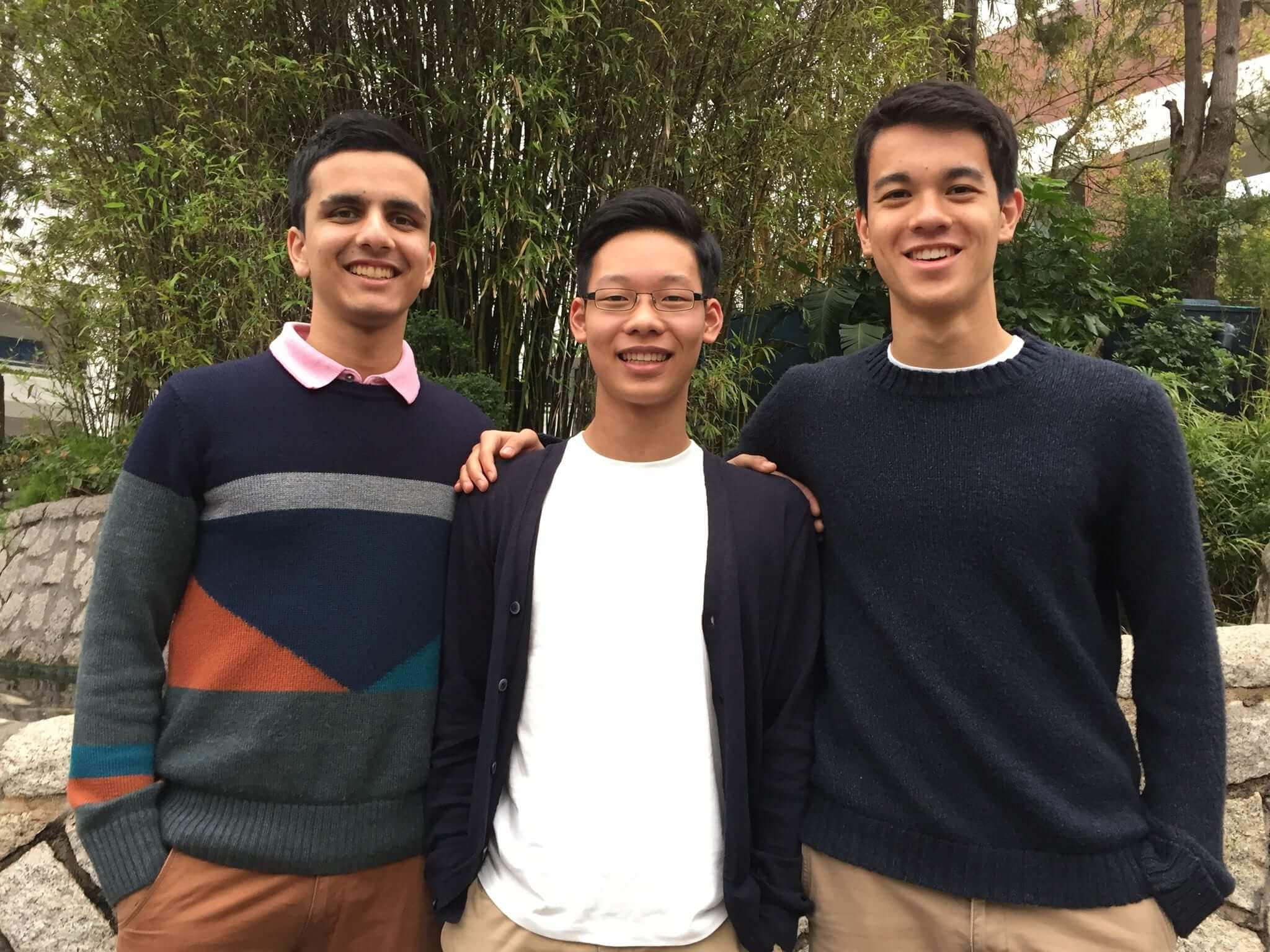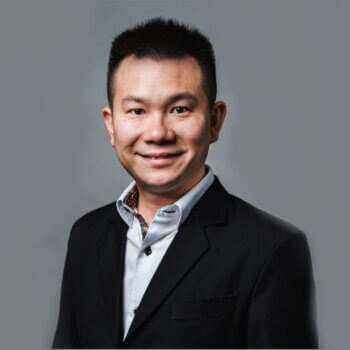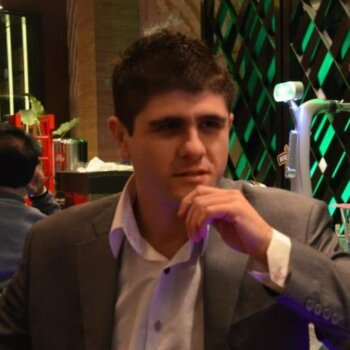Arthur Fukuda Lam, Co-Founder and Partner:
Arthur is a high school student currently studying in Hong Kong. Leveraging international experience working in various startups, and personal experience with idea generation to validation, Arthur has worked with the founding team since the beginning to develop and expand Vantage Ideation. In the future, Arthur would like to see greater opportunities for high school student participation in the local environmental social startup ecosystem. He believes that Vantage Ideation can not only empower youth to tackle the world’s most pressing food and energy problems but also connect outgoing and talented students with valuable startup opportunities in Hong Kong and Asia.
Anant Majumdar, Co-Founder and Partner:
Anant, a high school student based in Hong Kong, founded his own social impact initiative, Thuni Seed (facebook.com/ThuniSeed), in India, to empower rural women through entrepreneurship. Anant is passionate about social entrepreneurship and social impact bonds. He also serves as Chairman of Hong Kong Model United Nations, where he founded a new committee, the Social Entrepreneurship Alliance, aimed at using social impact bonds as solutions to Hong Kong’s social issues. Drawing on these experiences in the social impact space, he seeks to help social enterprises in Hong Kong grow and expand. Looking forward, Anant is determined to empower more youth to be entrepreneurial change-makers through Vantage Ideation.
Neil Slighton, Co-Founder and Partner:
Neil is a high school student currently studying in Hong Kong. His interest in Vantage Ideation comes from a life-long love for business and entrepreneurship. He has organized business case competitions, career panel series and operating platforms for small businesses all focused on the education and empowering high school students. Outside of Vantage Ideation, Neil has experience with needs assessment and logistics management for service in Cambodia. With Vantage Ideation Neil hopes to utilize the ideal start-up ecosystem in Hong Kong, and watch his hometown’s culture of youth social entrepreneurship blossom.
In your own words what is Vantage Ideation?
Vantage Ideation is a pro-bono consulting group that uses the unique perspective of high school students to help social enterprises and NGOs make lasting improvements to their organizations. At the same time, Vantage Ideation is a platform for students to gain insights into entrepreneurship and business.
How did you come up with the idea of Vantage Ideation?
Three years ago, we founded a business club, Entrepreneurs Exchange, at our school, Hong Kong International School (HKIS). We saw that there was an increasing interest and curiosity towards enterprise within secondary schools outside of HKIS, and we soon launched an inter-school umbrella entrepreneurship organization called the Asian Youth Social Entrepreneurship Association (AYSEA).
With these organisations we got involved in various events including business case competitions, speaker series where we heard from entrepreneurs about their journeys and their advice for us, and even how to start businesses of our own. In addition to this, each of us gained varied experiences in the entrepreneurship and social impact world. One of us worked with early stage social enterprises in Hong Kong as a volunteer, another with rural women in Coimbatore, India to help them start businesses to support their families, and another with tech startups in China in a volunteer capacity on marketing strategy.
Each of these experiences showed us that early stage enterprises, in particular, benefit from an outsider’s perspective, and this was the inspiration for Vantage Ideation. Early stage social enterprises can’t hire large multinationals, and at the same time, don’t always have the funds to hire additional full time staff. We wanted to tap the undiscovered value in youth in order to help these new social ventures make lasting impact. Not only was Vantage Ideation a way to gain experience with doing research, writing business plans and devising strategies, but also as a way to learn how startups work and the processes and struggles that come along with running a real world venture.
Could you walk us through the process of starting up Vantage Ideation?
We knew that being a new venture, it would be hard for us to instantly generate interest and enthusiasm in our concept. However, we believed that there were social enterprises in the marketplace who would actively benefit from our services. So in the very first weeks, we just spent a lot of time cold calling social enterprises through the government’s database, pitching our idea to them. Many of them didn’t respond, and many of them did — and that’s when we knew we were on to something.
At the same time, from our previous work in getting youth involved in social entrepreneurship through the Asian Youth Social Entrepreneurship Association, we had an existing member base which was raring to contribute. We invited those who were enthusiastic to join us, and slowly, the number of companies we were working with grew. At the same time as we were increasing the number of clients, we ensured that we stayed true to our mission of helping these organizations implement lasting improvements, and continued to maintain relationships with our first clients.
Looking back on our early days, there were times when we really struggled, not knowing if we would gain the traction we wanted. However, we’re glad that we had a really hard-working and motivated team — with new associates like Sarthak Bajpai, Julia Chen, James Chung, Guinness Chen, Rael Baird, Tian Ren Ye, Ryan Morris showing the commitment that was so crucial in our early stages.
Did you encounter any particular difficulties during startup?
For us, Vantage Ideation is what we look forward to when we go to sleep. When we have had to balance this passion for social entrepreneurship with exams, the going has been tough. We learnt to simply deal with the effort and learn to manage our time effectively. We’d often return home from Vantage client meetings late at night, and then have to study and do our homework. But for us, we’re doing what we truly love, and we’re having fun doing it, and so we have never really felt frustrated with the workload. Once the three of us began to balance these seemingly conflicting commitments, we began to see the light at the end of the tunnel.
How have you been developing Vantage Ideation since startup?
It is as much creating a team as it is an organization. We want to develop the Vantage Ideation name into something that students and businesses know, but we also want to develop a strong core team of partners that can build the Vantage network. Our core asset is our team, and this is what we’ve been building so far. We are very happy with the group we’ve assembled so far, and want to continue to attract the top high school talent to our group — this is one of our strategic objectives for 2016.
What kind of feedback did you get for Vantage Ideation so far?
So far the feedback for Vantage has been quite positive. Many of our former clients speak of the added value our insights have provided them, and this only motivates us to work with even more companies in the years to come.
What is your strategy against your competition?
Our concept is quite niche and so local competition is insignificant. Regarding our strategy against potential competition, it’s quite simple; we acquire them. Offer them a place and let them lead an engagement under the Vantage name — this way we continue to attract the top talent, while still building a cohesive team.
What can you tell us about the industry?
We’re generalists, we know a little about a lot of things, and the more senior you become, the more you come to know about a lot of things, but this inevitably pales in comparison to seasoned professionals who have worked in the consulting industry for years, even decades. And so this lack of experience coupled with our position as high school students means that at first glance, many would think our recommendations are treated as a joke.
This situation, however, isn’t exclusive to us. There will be a time where you will have to convince someone more senior, more experienced than you about something. And that is Vantage for every engagement. We’ve learned to back up our hypotheses with an overwhelming amount of irrefutable facts, figures and charts to make up for our lack of experience and gut instinct. Only then will companies trust our recommendations.
Concerning what we can tell you about the industry, we differ from the consulting practice in one key way — we only consult for early stage businesses, and we only consult for those creating a social impact. Thus, for the companies that end up working with us, a significant portion of the strategy is open to change, and we are forced to rely on hard market research, rather than just theory or assumption, to back up our recommendations. In this way, we’ve developed our own niche that we aim to stay true to for many years to come.
What is the future of the industry?
There is certainly room for growth, following the assumption that as the number of SME’s catering to secondary school students expands, demand for our services will increase. We believe relevance can be maintained through consistently producing innovative high quality recommendations. Therefore scouting and employing the brightest students from all backgrounds remains a high priority for the years to come.
Were there anything that disappointed you initially?
In the beginning, there was a large resistance towards accepting our services. Many of the cold calls and emails that we sent were left un-replied and this was quite disheartening. Yet after a few successful engagements, a strong track record helped us secure more clients which lifted the disappointment that clouded us initially.
What do you think about being an entrepreneur in Asia?
There is a conventional saying that being an entrepreneur in Asia is harder because of the stigma towards failure and of a resistance towards disruptive innovation. Especially as we’re in the consulting industry, and we’re an unconventional group, this conventional saying would seemingly hurt us more than anyone else. However, so far our experiences have been quite polar to that of this “norm” — we’ve actually been able to implement strategy shifts in companies we’ve worked with. In fact, we’ve found that while there are individuals who still cling to past ideologies, there exists a larger majority whom recognize the bygone nature of this mentality. And so perhaps it is neither easier nor harder to be an entrepreneur in Asia; it’s just like it is anywhere else.
Asian and Western entrepreneurship have more in common than they are different. Through the eyes of a student business consultancy, the insignificant differences between the two have no effect on our mission to provide high quality recommendations. We’ve worked with a varied selection of companies — from local Hong Kong businesses, to companies founded by expats. In each case, we’ve found a similar openness to change and enthusiasm for working with us.
What is your definition of success?
Success for Vantage means consistency within our delivery of high quality recommendations. Following this definition, Vantage has been quite successful; with over 10 completed engagements with both student organizations and local SME’s, there is a clear pattern of excellence that Vantage hopes to continue in the years to come.
Why did you decide to become an entrepreneur?
The three of us had heard from many places the phrase: “youth are the future of tomorrow.” In earlier years, we didn’t belief we could affect change in the world around us, but early in our high school career, from our varied experiences working with startups and social enterprises, we realized the impact we could make. When the idea for Vantage Ideation came up, the three of us encouraged each other to believe in our own convictions rather than succumb to what society told us — to wait until we had our university degree and MBA to start something. We truly believe in the growth of social entrepreneurship in Hong Kong and Asia, and we didn’t want to pass up the opportunity to play a part in this growth. This was the impetus behind Vantage Ideation.
In your opinion, what are the keys to entrepreneurial success?
In the beginning, most entrepreneurial ventures seem ambitious. Most entrepreneurs seem crazy. When we started Vantage Ideation, many people scoffed at the idea of high school students ever being able to make any impact at all on a social enterprise. We challenged this perception because we truly believed in our idea — of a community of empowered youth advocates, leaders, and innovators making lasting contributions to social enterprises. This conviction is absolutely necessary to entrepreneurial success. Only with this conviction is it possible to continue to grow your venture in the face of skepticism and pushback from the industry. This doesn’t mean you shouldn’t be open to feedback — feedback is crucial, especially from your customers — but it does mean you shouldn’t stop or lose momentum as soon as you encounter a skeptic.
Apart from having conviction, learning from failures is crucial. You’ve heard this everywhere — don’t fear failure. But when you fail, it is as important to deeply analyze what went wrong as it is to move on. For the companies we work with Vantage Ideation, we work hard to find out about failures in the recent past and understand why they happened. This helps frame our recommendations — so that they counteract the various pressures that caused past failures. By spending time looking into what went wrong, companies we work with avoid wasting resources by making the same mistakes.
Any parting words of wisdom for entrepreneurs out there from your personal experience?
Often times it becomes easy to be engrossed with solving problems and overcoming obstacles as they come about. However, it remains important to maintain a long term vision such that every problem solved becomes a constructive step towards a larger goal. Some of the social enterprises we have worked with become consumed with resolving trivial details to the extent where they lose sight of the bigger picture. This is something we’ve been a culprit of as well, but we always go back to our mission statement — and strive to retain our focus on making lasting contributions to social enterprises and building a team of empowered entrepreneurial youth consultants.
Connect
Website: www.vantageideation.com
Arthur Fukuda Lam, Co-Founder and Partner: https://hk.linkedin.com/pub/arthur-fukuda-lam/95/718/466
Anant Majumdar, Co-Founder and Partner: https://hk.linkedin.com/in/majumdaranant
Neil Slighton, Co-Founder and Partner: https://hk.linkedin.com/in/neilslighton





























